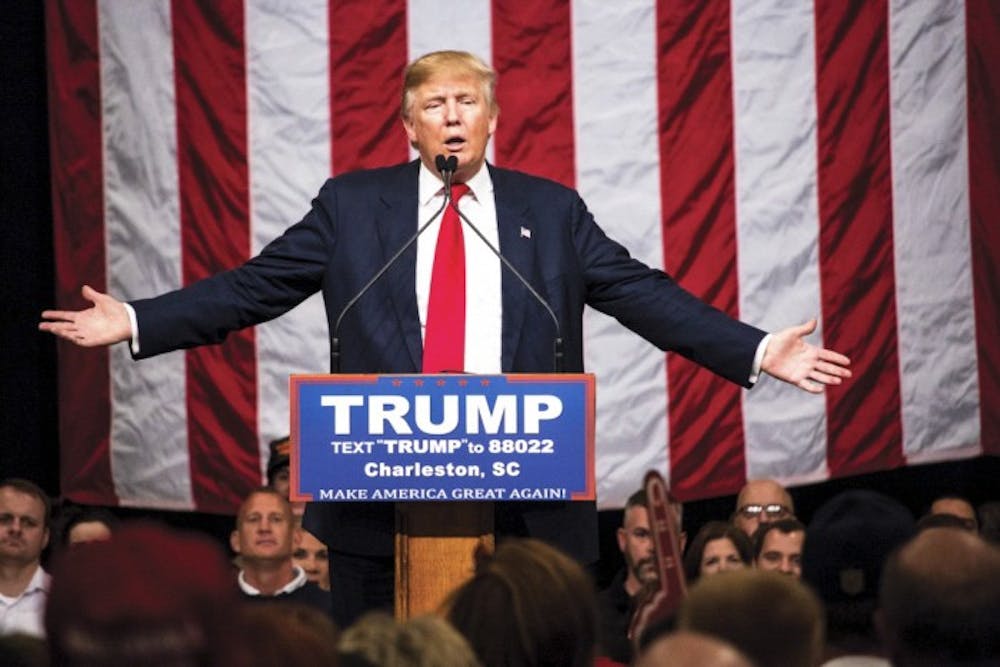
At a Penn reunion for the 1967 graduating class, dozens of alumni protested against classmate and 1968 Wharton graduate Donald Trump, pictured above, urging Penn to "Denounce Trump."
Credit: Julio SosaPenn administrators and alumni said it might be premature to make conclusions of the “Trump effect” on applications from international students.
A recent article from The New York Times cited a report by the American Association of Collegiate Registrars and Admissions Officers that found nearly 40 percent of American universities have seen a decrease in international applications since Trump’s travel ban — an executive order prohibiting nationals of six Muslim-majority countries from entering the United States.
The study also found that 35 percent of colleges have observed an increase in international applications, while 26 percent have witnessed no change at all.
Penn saw a 10 percent increase in the number of international applications for the class of 2021.
Dean of Admissions Eric Furda said he “[doesn’t] see how the election in November is a cause for impact in applications this year.”
However, he added that while this year’s application numbers have not been affected, the number of international students who choose to enroll this year and the applicant totals for future years could decrease because of Trump’s executive order.
1986 Wharton graduate Laurie Kopp Weingarten, co-founder and CEO of One-Stop College Counseling, recalled a conversation her colleague had with an international student who decided to attend a Canadian college because of Trump’s policies.
“A girl was deciding between two U.S. colleges and two Canadian colleges and she went to see the counselor today and said, ‘My parents want to me to go to one of the Canadian schools because it’s safer,’” Weingarten said. “The counselor asked, ‘What do you mean by safer?’ and she said, ‘Because of Trump.’”
Weingarten said certain Canadian universities have witnessed an increase in applications, which could indicate a possible decrease applications to American colleges.
“McGill [University] applications are way up, and they have not given everyone decisions yet,” Weingarten said. “They’ve been saying since the day after Trump won, they’re getting a ton of inquiries, starting literally from Election Day, about coming to school in Canada.”
However, Weingarten also said the Times article was “sensational” in the way it reported the findings of the AACRAO study.
She said the travel ban “probably has had an effect” on applications from international students, but believes the Times’ headline — “Amid ‘Trump Effect’ Fear, 40% of Colleges See Dip in Foreign Applicants” — is an overstatement.
In her view, more data is required to actually understand the implications of the “Trump Effect.”
Furda agreed, adding that it’s too early to jump to a conclusion. As of now there is not enough data to support a cause and effect relationship between application statistics and Trump’s policies.
“People like causality. It makes them feel comfortable. There’s a reason they can rationalize it, react to it and adjust to it,” he said.
“The year before Malia Obama decided to defer a year or take a gap year, Penn saw a spike in the number of students who requested a gap year,” Furda said. “If that had happened the year Malia Obama did a gap year, everyone would say there’s a ‘Malia Obama Gap Year Effect.’”
The Daily Pennsylvanian is an independent, student-run newspaper. Please consider making a donation to support the coverage that shapes the University. Your generosity ensures a future of strong journalism at Penn.
Donate



